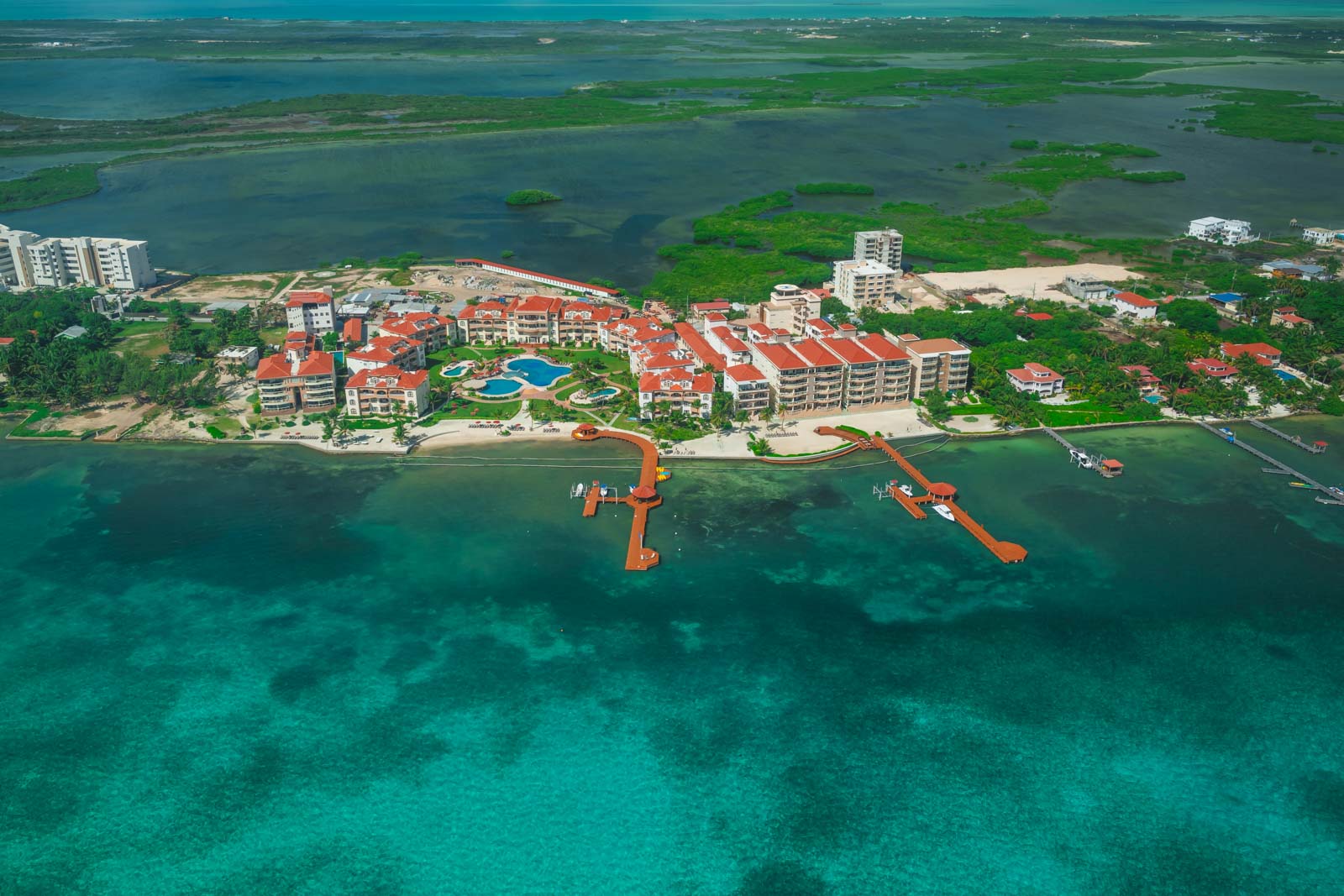
Is Belize Safe To Visit In 2024? Your Guide To Belize Travel Safety
Belize is gorgeous. We should know; we just returned from a two-week trip. The mainland is covered in a dense, tropical jungle, while offshore, it has the Belize Barrier Reef—an acclaimed spot to scuba dive and snorkel. As if that wasn’t enough, you’ve also got the history of Mayan ruins to experience at sites like Altun Ha. Basically, we totally understand why you want to visit. Belize is in a league of its own.
Unfortunately, you will need to take some extra safety precautions, though. Staying safe in Belize requires you to go beyond the usual “check general travel advice and book basic travel insurance.” The country has quite a few instances of crime, gang violence, and drugs, which can leak into tourist areas.
In this guide, we’ll prepare you for staying safe in Belize. We just returned from a visit to Cay Caulker, Ambergris Cay, and San Ignacio and felt really safe. If you take the right precautions you can enjoy this country worry-free like we did. So, don’t rule out scuba diving and sightseeing Mayan ruins just yet; here’s what you need to know.
Is Belize Safe? A Quick Summary
We know that not everybody has the luxury of time. If you’re in a rush, check out these main bullet points for a quick overview of safety in Belize.
- Belize experiences a notably high crime rate for violent crime, including homicide, sexual assault, and armed robbery.
- Belize has a lot of gang violence, which occasionally results in shootings in public places.
- The border areas, Caracol, and Belize City (particularly the inner-city region of Southside Belize City) all experience a high crime density.
- Belize has a lot of natural disasters like hurricanes, so visitors should take caution when traveling during hurricane season.
- Road standards in Belize are considered poor by international standards.
- There have been incidents with water activities resulting from poor safety procedures and measures.
Travel Advisories: Officially Speaking, Is Belize Safe?
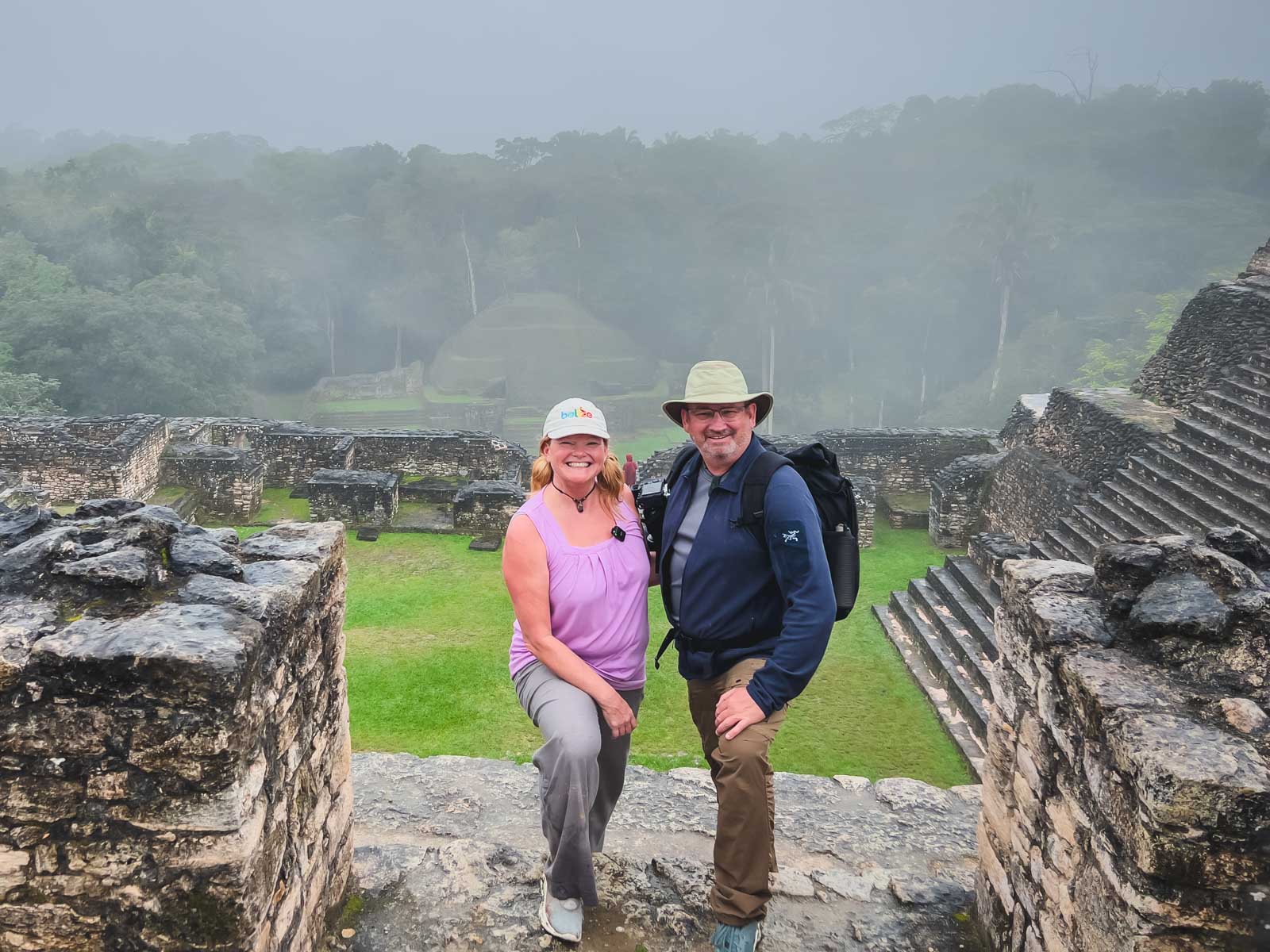

Officially speaking, Belize is possible to visit and not barred as a “red list country” or “do not travel” area by the USA , Canada or the UK. Instead, it’s widely advised to take increased caution if you visit Belize.
The US Travel Advisories for Belize suggest that you exercise increased caution throughout the country, escalating its concerns specifically for Belize City. It advises that you “reconsider travel”, marking the city as a Level 3 zone despite the rest of Belize securing a milder Level 2 warning.
The US advisory acknowledges that gang violence in Belize City tends to occur below the Haulover Creek River and rarely crosses into tourist areas. However, as a whole, it advises that risks are high, especially given the historical crime in the city.
The advisory emphasizes that violent crimes like sexual assault and armed robbery can – and do – occur in daylight, even in public areas. It’s wise to take extreme safety precautions when traveling throughout Belize.
The Canada Travel Advisories for Belize are quite similar to the US advisories. Belize in general has an Exercise a high degree of caution warning due to high levels of violent crime throughout the country. There is also a warning to Avoid non-essential travel to Southside Belize City, south of the Haulover Creek River, due to gang and drug-related violence, including murders and shootings.
Tourists should not even venture to this part of Belize city. Gang warfare is really prevalent here, and it is easy to be caught in the crossfire.
The UK travel advisories for Belize echo an almost identical sentiment. They advise that Belize has “one of the highest murder rates in the world” and hint at inadequate policing, saying that “police capacity is limited and many crimes remain unsolved.” Like the US and Canada advisory, they particularly emphasize the dangerous nature of travel around Belize City, especially the Southside.
The UK advisory also warns of muggings across Belize, including San Pedro, Caye Caulker, Placencia, and San Ignacio. It highlights the increasing risk of sexual assault and rape, too, warning against solo travel and venturing down quiet streets.
Violent Crime in Belize
As you now know, Belize has a pretty nasty mix of crime scattered throughout the country, particularly in Belize City, which is prone to gang-related violence. It has an overall crime index of 53.15, notably higher than the US at 49.34 and the UK at 47.61. Most concerning is the fact that this crime rating has increased over the past three years. Crime in Belize is common, and unfortunately, it seems like it’s going to stay.
The most common crimes in Belize are:
- Dealing of drugs
- Theft from property, which includes hotels and tourist accommodation
- Sexual assault
- Murder and grievous bodily harm
- Verbal or physical abuse
- Muggings and armed robbery
Moreover, there are concerns over policing, too:
- Corruption and bribery
- Lack of inefficiency of police response
We’ll discuss police effectiveness in a second, but many crimes go unsolved. Corruption may be involved in your police interactions, although you can still call 911 for assistance from local authorities in an emergency.
Belize City experiences a disproportionate amount of gang-related violence and crime, so visitors should exercise a high degree of caution. While gang members typically operate out of tourist areas, affected areas are close enough to the city center that unsuspecting tourists may wander into trouble, or conflict may spill over.
The rest of Belize still requires you to exercise caution, with high levels of robbery and opportunistic crime, some of which are violent.
Police in Belize
Onto the police in Belize, as promised. Well, you already know that the general consensus with the Belizean police is that they’re often underfunded and lack the capacity to actually punish or react to many criminal cases.
Local authorities and outlets are overrun. Your best method of protection from petty crime is excellent travel insurance.
On a slightly different note, you should make sure that you are sticking to the right side of local laws, like holding an IDP if you rent a car and avoiding any illegal drugs.
Natural Disasters in Belize
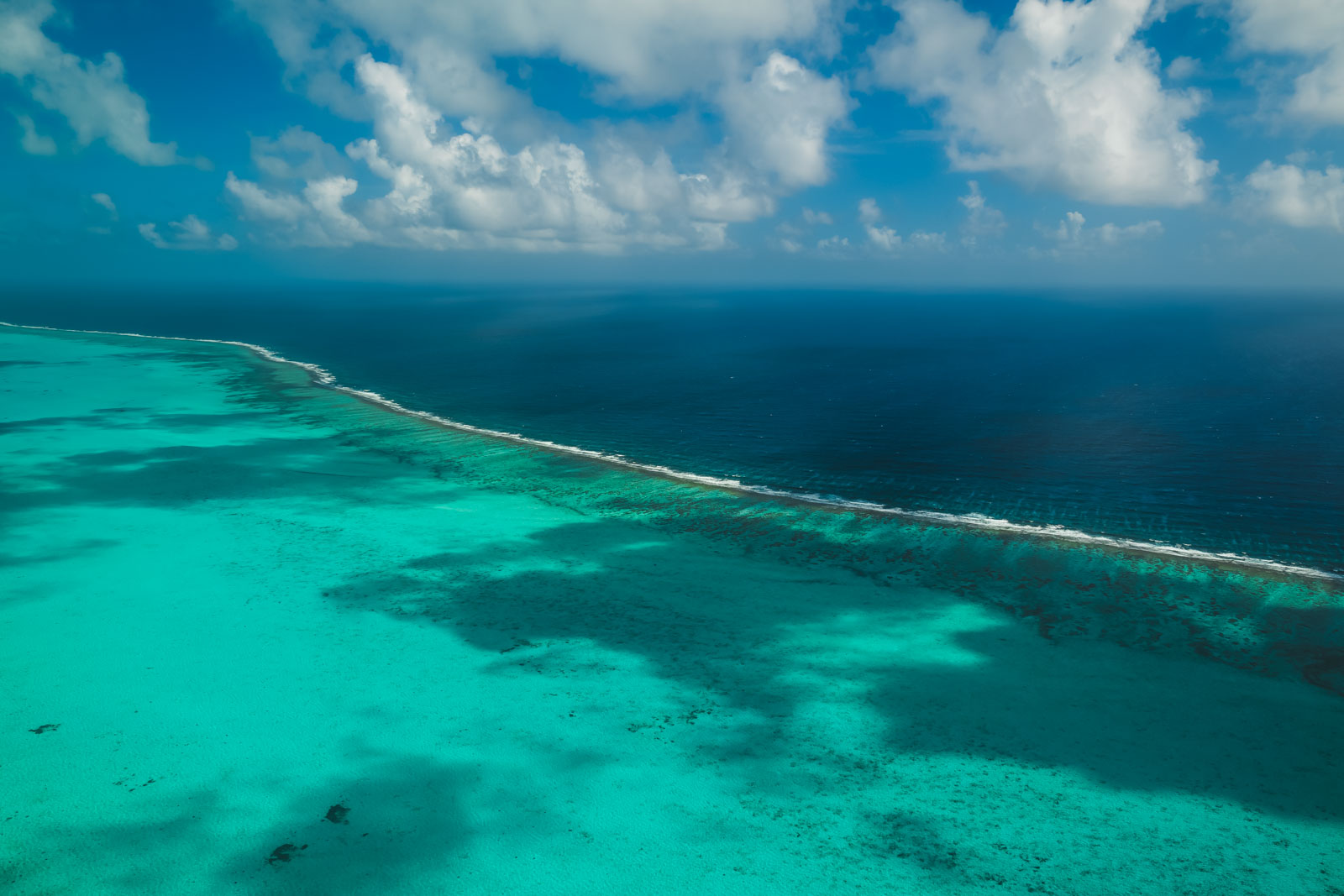

Belize has a bad rep when it comes to natural disaster risk. The country has a coastline that opens onto the Caribbean Sea, so you should exercise caution during hurricane season, between June and November, particularly from August to October.
These months are fraught with hurricanes and severe storms. As a knock-on effect, Belize often experiences flooding and sea level rises. There is the threat of tsunamis, but there has never been one in recent history, just some warnings a few years back.
We recommend trying not to travel during these months or at least subscribe to weather warning alerts. On average, the country experiences seven hurricanes a year, so it pays to avoid the season entirely.
How To Stay Safe in Belize in Case of Natural Disaster
If you decide to visit Belize during this high-risk period, we’d suggest visiting pre-armed with a list of ways to stay safe in case of natural disasters. Here are a few tips you can use to keep safe in the face of disasters like flooding and hurricanes:
1. Have an Evacuation and Shelter In Place Plan
It’s wise to have a plan to evacuate (this could be travel insurance to get compensation if you have to book an early flight home or a “go-bag” to evacuate to a different region in Belize). You should also have a shelter plan, checking ahead of time with your accommodation to see what support they offer.
2. Know The Area
Do some basic research on the area you’re staying in beforehand. You should know where the closest police stations, hospitals, and practical places like the highest ground (in case of flash floods) are. Knowing this layout will help you in case of emergency when every minute matters.
3. Subscribe to Alerts
Subscribe to alerts from the US Embassy in Belize, local media, and disaster-related alerts from companies like the National Hurricane Center Atmospheric and Oceanic Administration.
Weather in Belize
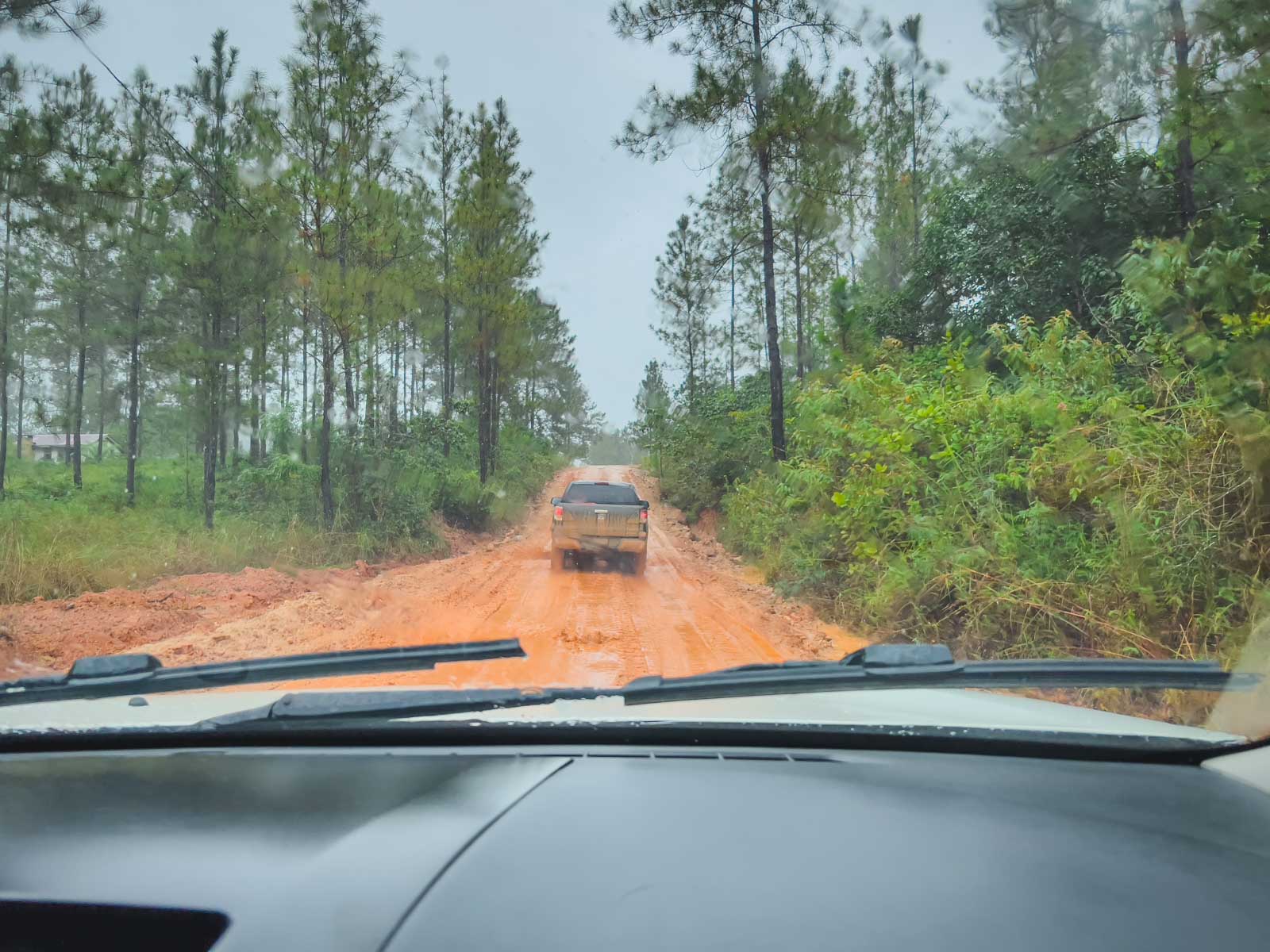

Of course, the best way to understand the risk of seasonal natural disasters is to understand the weather in Belize. Knowing the country’s weather breakdown by season can really help lower the risks of travel.
Overall, you should know that Belize has a subtropical climate, mostly split into a dry and rainy season. The rainy season lasts from June until November, coinciding with its hurricane-prone season. The dry season runs from February until May. Temperatures sit between 70 and 90 degrees Fahrenheit all year round.
We’ll take a closer look, though.
Spring: March to May
March to May in Belize is mostly dry, with temperatures between 75 and 90 degrees Fahrenheit. May is the warmest choice, while late March to early April is the busiest time with all the spring break crowds.
Summer: June to September
This is Belize’s official wet season. Despite temperatures sitting at their highest between 80 and 90 degrees Fahrenheit, coastal areas may notice a drop with all the winds. This is when Belize has its highest risks of hurricanes and floods. We’d recommend giving it a swerve.
Fall: October to November
Fall is still a little iffy, with frequent rain despite the drop in the risk of hurricanes. Temperatures hover at around 75 to 85 degrees Fahrenheit, but you should still expect a slight chill in the blustery coastal regions. Only a few tourists bother visiting at this time of year, as the rain can cause flooding and, in general, doesn’t make for a pleasant stay.
Winter: December to February
Winter marks the beginning of the dry season—hooray! December is always a slow start, with the rain dragging its feet a little before disappearing. However, January and February are notoriously dry and are the months when tourism picks up again.
Temperatures are mild, between 70 and 80 degrees Fahrenheit, but the slightly cool, drier weather is ideal for sightseeing. A win is a win, right?
5 Tips For Staying Safe in Belize
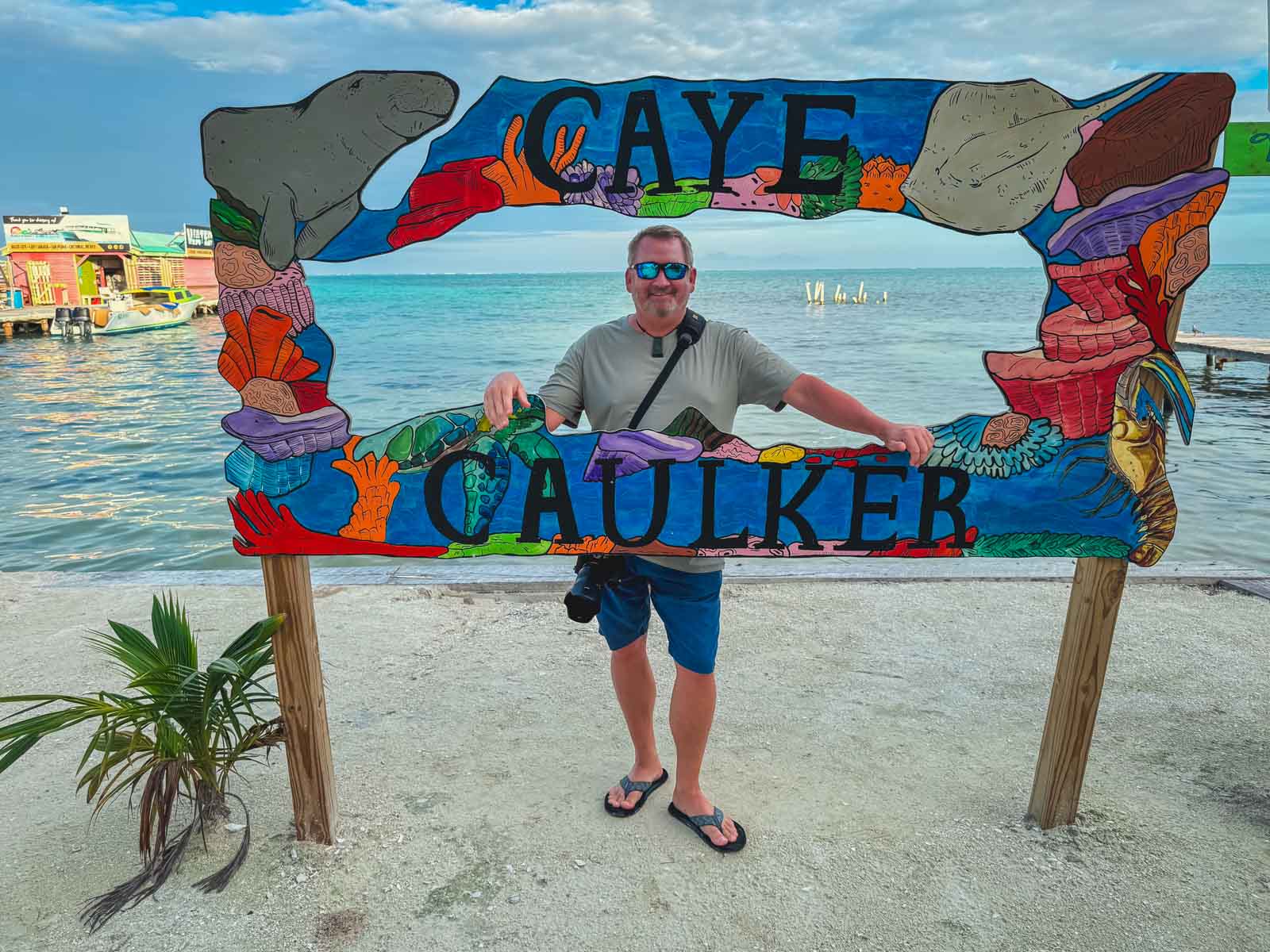

As mentioned, travel insurance alone won’t cut it when visiting Belize. A great way to stay safe is to tick all the basics (travel insurance will be more helpful than ringing 911 if a camera gets swiped). However, as a general rule, you must build on the basics with more specialized strategies to stay safe in Belize.
1. A Spare Wallet is Your Best Friend
When visiting Belize, carrying a spare wallet with old (or lesser-used) cards and loose cash is a great idea. This is mostly for if you are traveling in the larger cities. Mugging can get everyone. There’s no guarantee you won’t fall foul of this unlucky crime, so why not be prepared?
You should never resist a mugger. So, instead, offer an alternative that doesn’t really impact you.
2. Don’t Scrimp on Transportation
There are so many countries where you can cut costs by taking public transport. Belize isn’t one of them. Skip low-cost transportation and always choose the more secure options. We opted for private transfers which were safer and faster. This is non-negotiable in Belize, especially when it comes to things like night buses.
3. Leave Your Luxury Fashion Sense At Home
Flashy jewelry and even particularly eye-catching outfits might look amazing, but we’d advise leaving them at home. You want to avoid drawing attention to yourself with anything designer or expensive-looking. Instead, dress down and make your goal to blend, not catch eyes.
4. If In Doubt, Skip Belize City
Belize City is by far the riskiest place in the country. If you are unsure whether you feel confident taking active safety measures, just skip it. There are easier places to stay safe in Belize, like Caye Caulker. It’s easy enough to cut it out of your itinerary.
5. Do Your Season Research
Finally, do your season research. As you learned in the section above, Belize’s climate changes on a monthly basis despite its overall dry versus wet season. It’s best to avoid the peak hurricane risk months.
You should also keep in mind that rainier and off-season months attract fewer tourists. This means fewer crowds and more isolated tourist areas, which can actually put you at more risk of opportunistic crime. It’s a bit of a catch-22 when heavy crowds tempt pickpocketing. Still, in general, peak months are better to avoid being isolated for more violent crimes.
Belize Emergency Numbers
- Police (Countrywide): 90/911
- Fire and ambulance (Belize City only): 90
- Police (Belpoman): 822-2222
Is Belize Safe for Families?
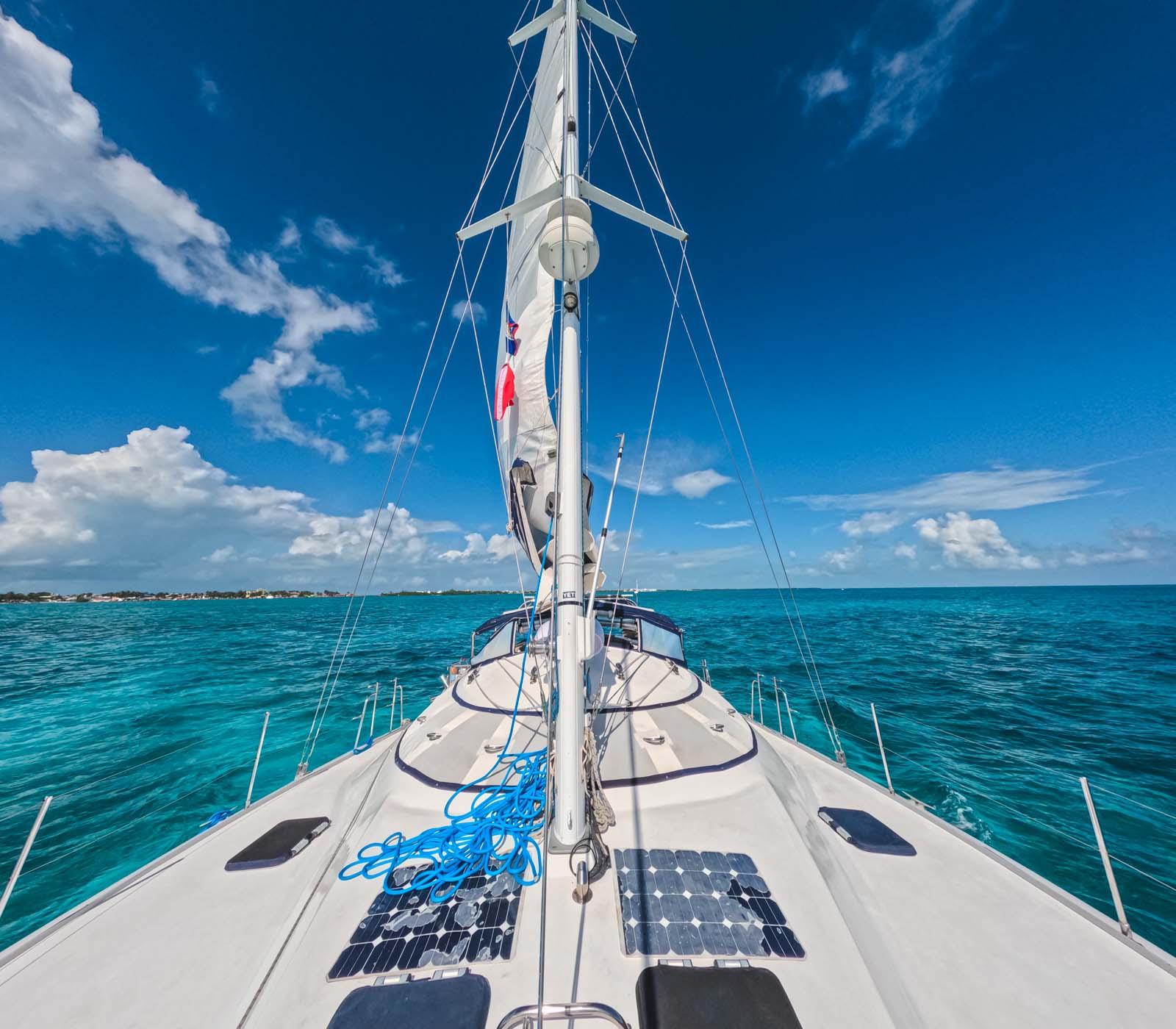

We’d say that areas like Caye Caulker and Ambergris Cay are safe for families with travel-savvy parents. If you are an experienced traveler and are spending the money to stay in extra-secure, beautifully-located accommodations with reputable tours and transfers, Belize is safe for families. Just keep in mind that it may be a better holiday to take with older children who you can explain basic safety precautions to.
For families without that pre-existing travel experience, we recommend choosing a different place to visit. Save Belize for a little later after you’ve had a few practice runs.
Tips:
- Take accommodation seriously when traveling as a family, and refrain from scrimping on security or location.
- Choose your destination in Belize carefully, selecting traditionally “safe” areas like Caye Caulker.
Is Belize Safe for Solo Travelers?
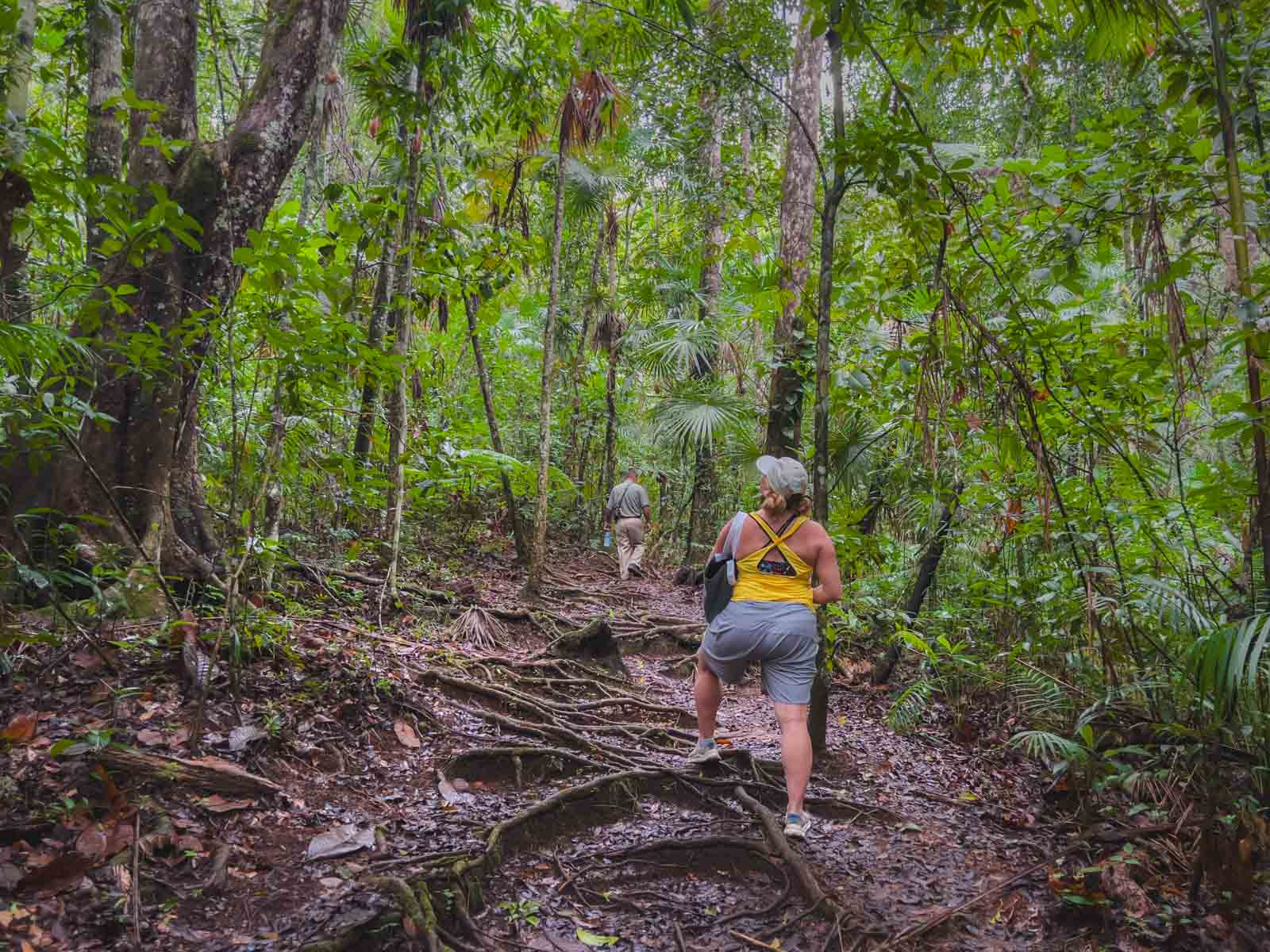

Belize is a bit of a challenge for those visiting solo, but equally very rewarding. If you’ve had plenty of solo travel experience, you’ll find it manageable, and there’s a great hostel scene for making new friends. Experienced solo travelers are often even more conscious of safety precautions than those in a group, so Belize can actually be better suited to solo travel in that sense.
Still, as a general rule, Belize is best experienced in a group to limit the risk of muggings and more sinister crimes like sexual assault. You can book things like group tours and guided day trips to help you stay safe while traveling to Belize alone. If visiting solo, avoid non-essential travel at night, take care in rural areas, and don’t indulge in excessive alcohol consumption.
Tips:
- Take group tours where possible and avoid walking alone at night.
- Choose well-located hotels or hostels.
Is Belize Safe to Take Public Transportation?
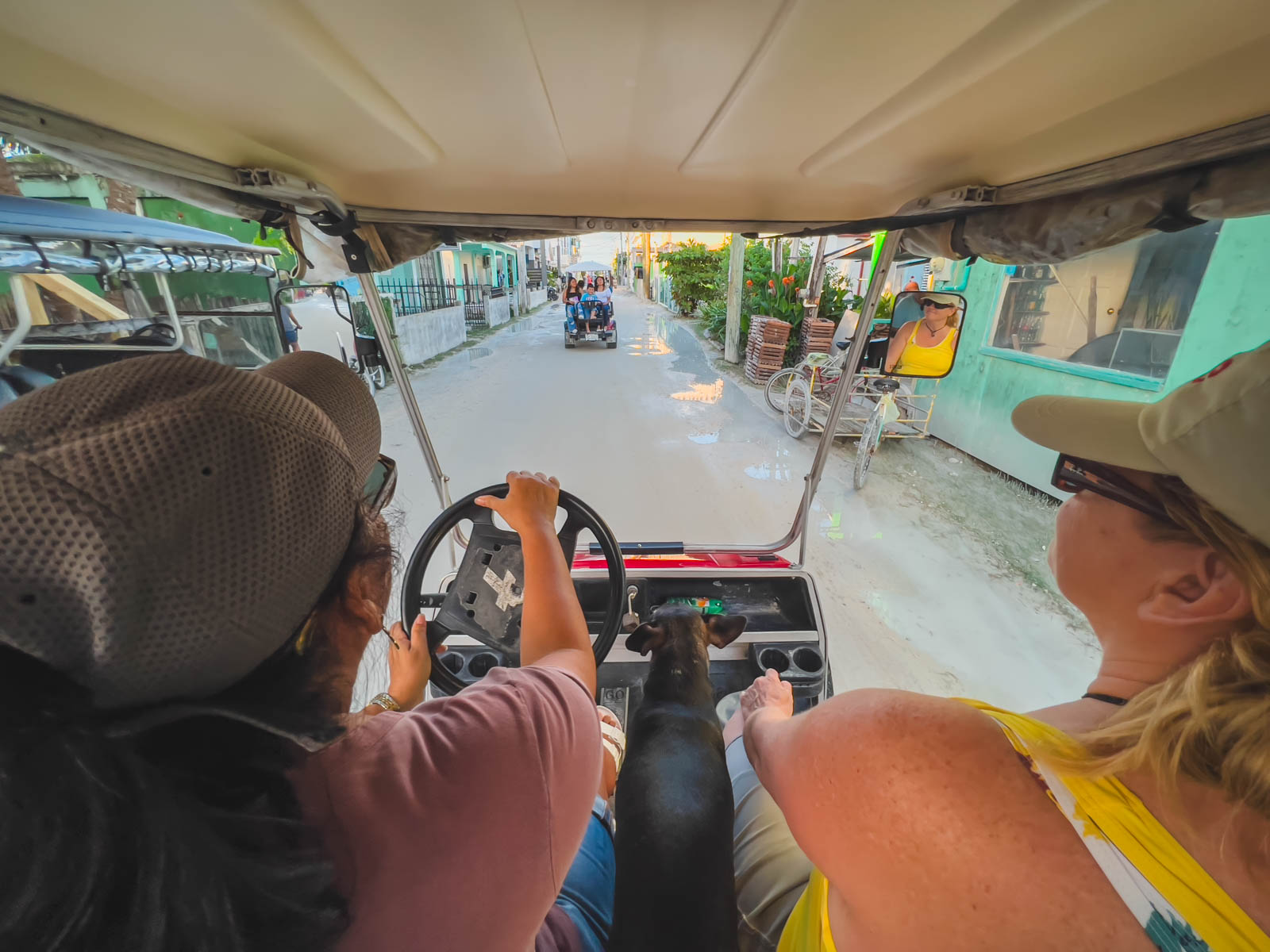

Public transportation is relatively safe in Belize, but be prepared for an intense experience. So-called chicken buses are brightly painted public buses operating in suburban and urban areas. They are typically packed but a cheap way to get around. Be a little mindful of pickpocketing, altercations, and bag snatching, but otherwise, this method of public transportation is safe.
At night, throw all that out the window. You should avoid public transportation at night at all costs, as it creates a much higher risk for violent crime. Get a registered taxi instead, or avoid unnecessary night travel.
The safest way to get around Belize is by registered taxis, which you can recognize from green license plates. Uber doesn’t exist here, so green license plates will undoubtedly become your next best friend. You definitely want a registered taxi driver, as it offers an extra security layer. It is a good idea to check out the Government Of Canada’s recommendation on public transport.
You can also rent a car and drive around Belize in private vehicles relatively easily. However, you should exercise a high degree of caution at night, ideally avoiding all nonessential travel after dark. You should also be prepared for regular police checkpoints, where you must display a form of ID and your International Driving Permit. Be mindful of only ever using official border crossings and be aware of the risk of armed robberies at places like traffic lights in urban areas or opportunistic crime on remote roads.
Are Medical Facilities Safe in Belize?
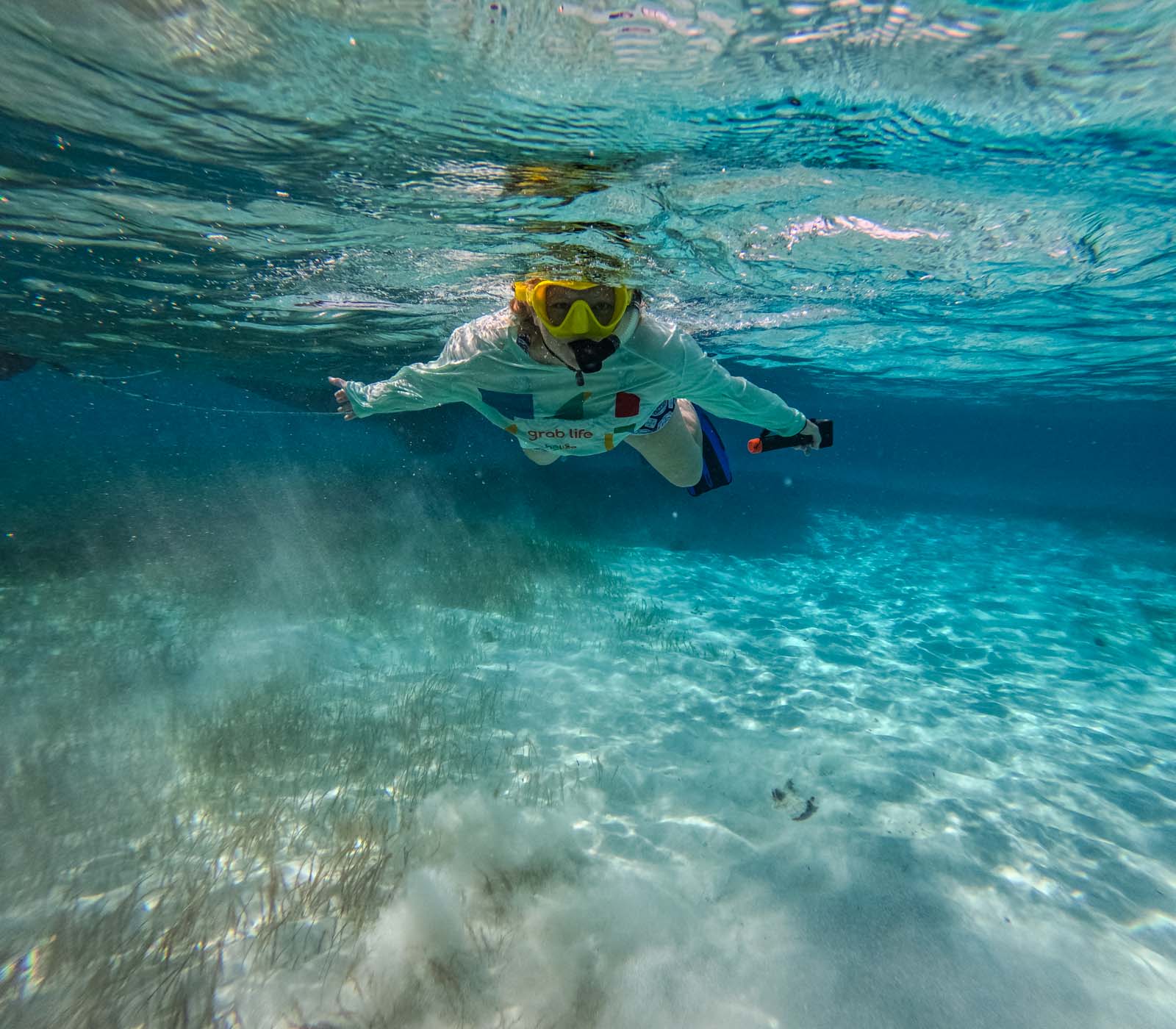

Medical facilities in Belize are mixed. There are two types of facilities: public and private hospitals. Private hospitals are generally a better option as they’re better funded, so they have better medical supplies and more to invest in adequately trained professionals. However, access to either can be seriously limited, especially if you’re staying in rural areas.
We’d suggest checking where your nearest hospitals are before visiting. Ensure you are up-to-date with all your vaccinations and routine health checks before departure. And make sure you have good travel insurance if it becomes a better idea to fly home. This is particularly the case if the hospital doesn’t have a specific, niche type of medication or treatment available on immediate demand. Belize’s best hospitals are great for minor injuries, but if you have a more serious problem, it may be advisable to seek treatment elsewhere.
Is Belize Safe? Top FAQs
We’ll leave that question up to you—do you feel confident using all the information above to plan a safe trip? Belize receives nearly a million visitors each year, the vast majority of whom travel the country with no issues. It is all about choosing destinations where you feel comfortable taking responsibility for your safety, and we all know some countries make this more challenging than others. Belize is challenging but not impossible. We love it.
Here are a few common FAQs to help clear the question of “should you, shouldn’t you” up.
Is Mexico or Belize safer?
Mexico and Belize are roughly on a par. Mexico has some Level 4 areas (marked as “do not travel”) but has a clearer area for safe tourism in Cancun and along the Mayan Riviera coastline. Belize has only one Level 3 area (“marked as reconsider travel”) but less clearly marked areas for safe tourism. It depends on where you plan to travel.
Is Belize or Costa Rica safer?
Costa Rica is marginally safer, as it is only marked as Level 2 by the US Travel Advisory. In contrast, Belize City is marked as a Level 3. However, both Belize and Costa Rica are flagged for violent crimes, including sexual assault. It’s best to approach both countries with increased caution.
When not to go to Belize?
August and October are the worst times to go to Belize. These are the months when you can experience the most storms and hurricanes, which can be dangerous. It is smack in the middle of hurricane season.
What is the safest part of Belize?
Caye Caulker and San Pedro are the darlings of Belize, two areas known for being comparatively “safe” across the country.
So, Is Belize Safe To Travel In?
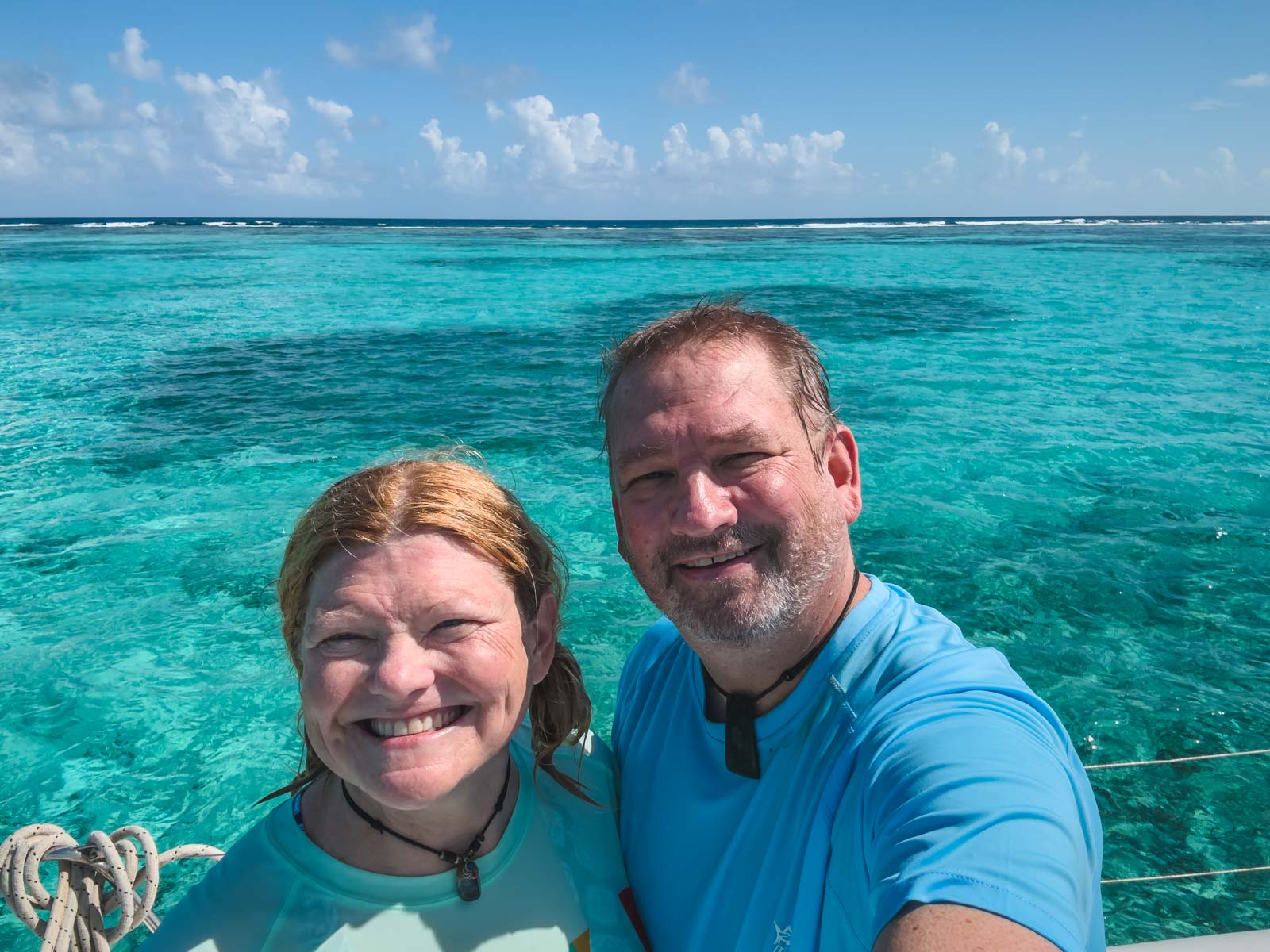

No, Belize isn’t a traditionally safe place to visit. However, there are levels to the risks you take; are you planning a trip to Southside Belize City or Caye Caulker? Are you visiting on a tour? Or are you going solo? How much travel experience do you have? What are the current updates, and what time of year are you going?
For those willing to take water-tight safety precautions, Belize vastly rewards your extra efforts. There’s no denying the country is beautiful. We have a perfect one-week itinerary here if you’d like some inspiration.
Stay safe and enjoy. The best safety precaution is knowledge, and we hope you have a fantastic time.
